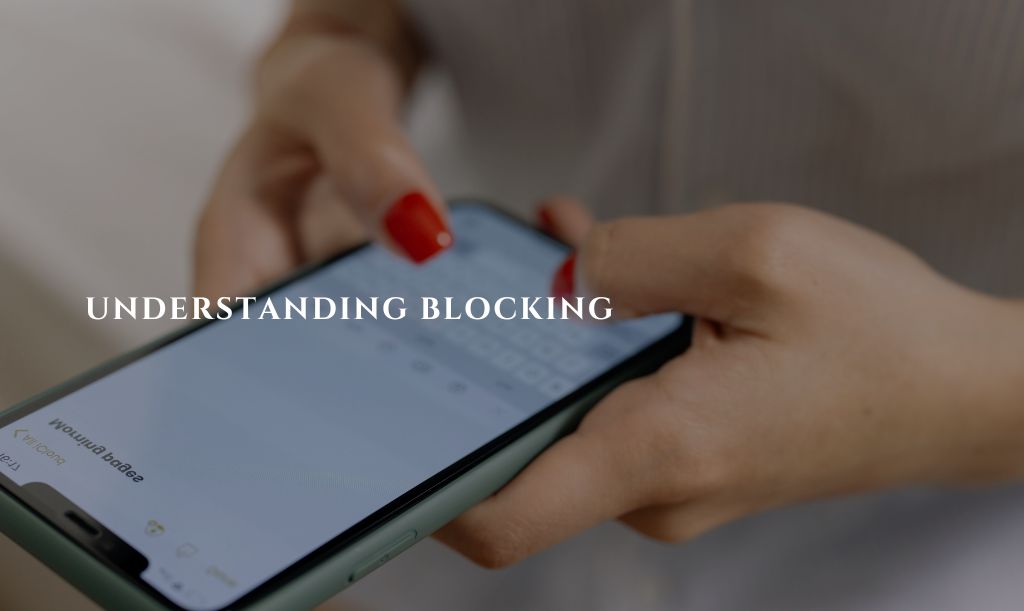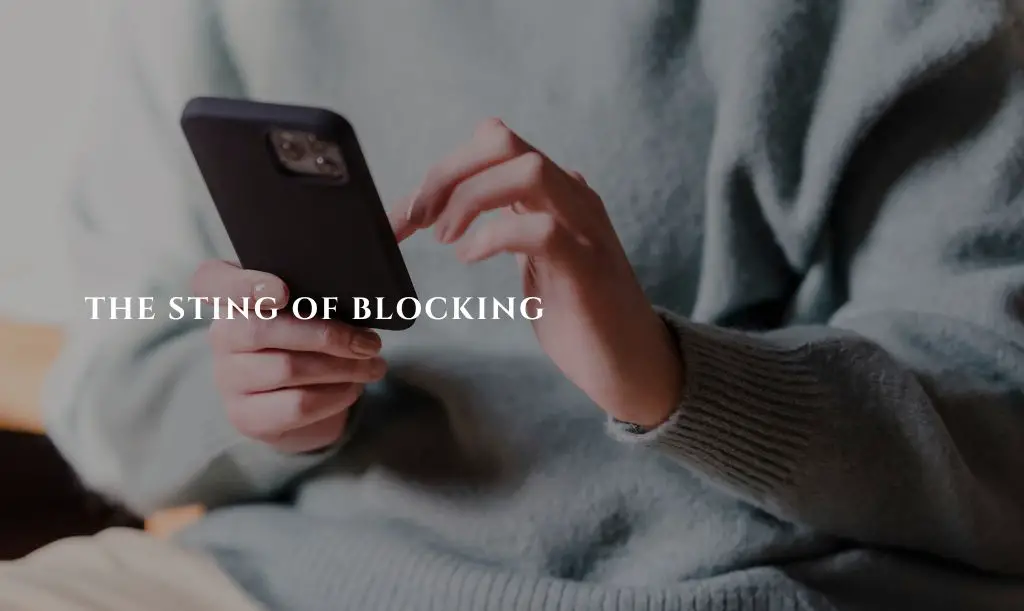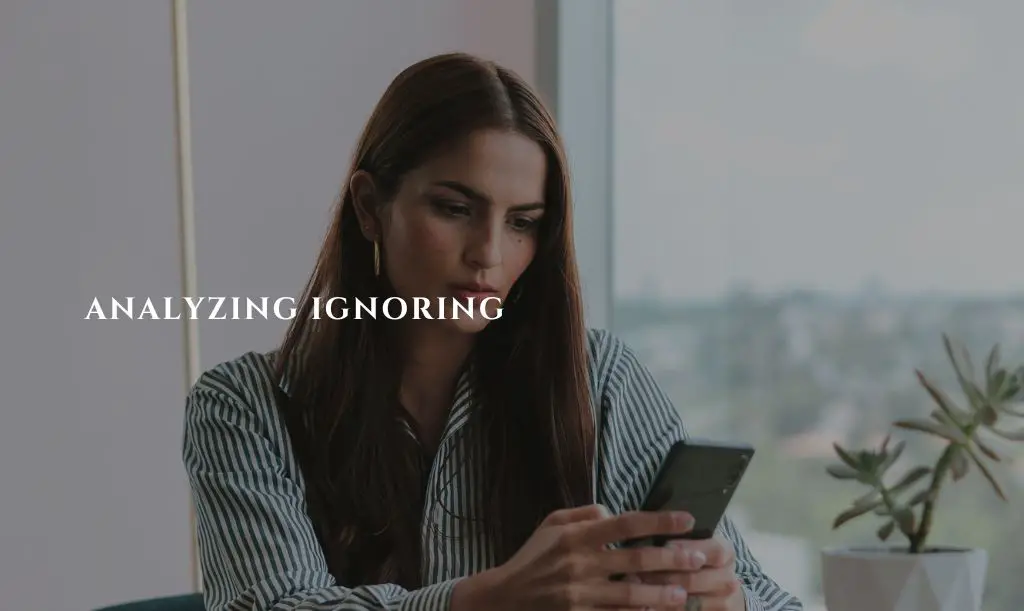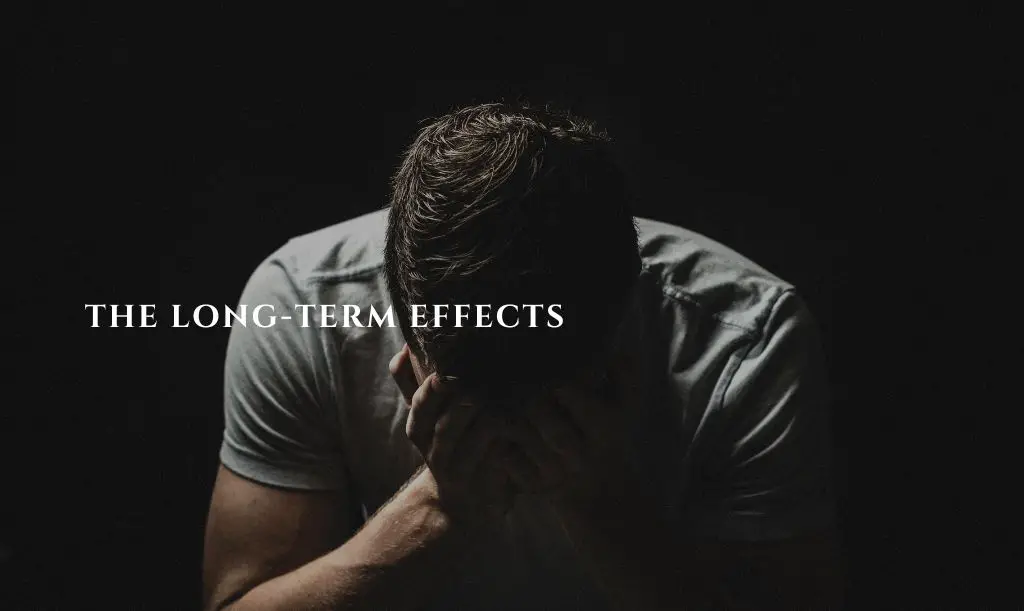What hurts more blocking or ignoring?
Blocking and ignoring are two distinct actions with similar outcomes: shutting down communication channels.
Blocking typically occurs in digital contexts, such as on social media platforms or messaging apps, where individuals can prevent others from contacting them or viewing their content.
On the other hand, ignoring transcends both online and offline realms; it’s an act of deliberate avoidance where individuals choose not to respond or acknowledge someone’s presence or attempts at communication.
Let’s find out which one hurts more.
Understanding Blocking

Blocking is a powerful tool we have at our disposal in this age of advanced technology.
It involves putting up an impenetrable digital wall between yourself and another individual, ensuring that their presence is erased from your online universe.
It’s like slamming the door shut on someone’s face, but in the virtual realm.
Whether it’s on social media platforms or via messaging apps, blocking allows us to sever ties with individuals who no longer serve a positive purpose in our lives.
Exploring The Reasons Behind Blocking:
Here are some reasons why you may choose to block someone
- Protection from harassment or abusive behavior: Sometimes, dear readers, people cross boundaries and unleash their toxic behavior upon us. In such cases, blocking becomes a fortress that shields us from their hurtful words and actions. It provides a necessary sanctuary where we can regain our emotional well-being and regain control over our lives.
- Maintaining personal boundaries: We all need personal space to thrive and flourish. Blocking helps us establish those boundaries when they are being relentlessly violated. Perhaps an acquaintance insists on sending unsolicited messages or constantly invades your privacy by prying into your personal life. Well, blocking them sends a clear message: “Back off!”
- Avoiding negative influences or toxic relationships: Toxicity seeps into our lives like venomous fumes clouding our judgment and polluting our happiness. Blocking gives us the power to cut ties with those who bring negativity into our existence – be it former friends turned foes or individuals who drain us emotionally with their constant drama and negativity.
Understanding blocking goes beyond its technical definition.
It empowers us to take control of our digital lives and protect ourselves from those who seek to harm or hinder our well-being.
Blocking serves as a fortress of solitude, allowing us to maintain personal boundaries and safeguard our mental health.
The Sting of Blocking

While many may argue that blocking someone is a mere act of self-preservation or asserting personal boundaries, it does not come without its fair share of emotional turmoil.
The blocker often finds themselves plagued by guilt, questioning whether they made the right decision to sever ties so abruptly.
They wonder if there was a better way to handle the situation or if they have taken away someone’s opportunity for growth and change.
It’s an internal war between self-protection and empathy, leaving the blocker feeling like they’ve traded their humanity for momentary relief. Fear of missing out on potential resolution or closure:
One cannot help but ponder what happens when we slam that door shut with a block.
Will there ever be room for resolution? Or are we doomed to forever wonder about what could have been?
This fear gnaws at the blocker’s conscience, keeping them awake at night as they replay scenarios in their head like a broken record.
Doubts creep in, questioning whether this drastic action was necessary or if it will only serve to perpetuate an unresolved conflict that may haunt them forever.
Anxiety About Potential Retaliation Or Consequences:
Blocking is not always met with silence and acceptance; it can ignite anger and fuel retaliation in those who feel scorned.
The possibility of facing repercussions can instill anxiety deep within the blocker’s being.
What if the person they blocked seeks revenge by spreading malicious rumors or tarnishing their reputation?
The fear of becoming a target weighs heavily on their mind, making them question whether this act was worth jeopardizing their peace and stability.
Blocking may seem like an easy solution to eliminate toxic individuals from our lives, but let us not overlook the emotional turmoil it inflicts upon the blocker.
Guilt, fear, and anxiety become unwelcome companions in the aftermath.
So before we tout blocking as the ultimate solution, let us not diminish the emotional toll it takes on those who wield this power.
Analyzing Ignoring

The age-old act of ignoring is a weapon wielded by the weak and cowardly in their feeble attempts to assert dominance or avoid confrontation.
Ignoring, in the context of interpersonal relationships, refers to a deliberate act of disregarding someone’s presence or communication efforts.
It is a disrespectful behavior that communicates a clear message: “You are not worth my time or attention.”
Whether it is a partner giving you the silent treatment, a friend deliberately avoiding your calls and texts, or an acquaintance pretending not to see you on the street – ignoring cuts deep and leaves wounds that may take ages to heal.
Exploring Different Forms of Ignoring
Now, let’s delve into the various forms of ignoring that people employ with apparent delight.
First up is passive ignoring – oh yes, the classic silent treatment.
This tactic involves shutting down all lines of communication without any explanation whatsoever.
It’s like being trapped in an emotional labyrinth where words are forbidden, leaving you to wander aimlessly amidst confusion and frustration.
Next on our list is active ignoring – an art form mastered by those who excel at evading confrontation.
This breed of ignorer goes beyond mere silence; they actively avoid any situation or interaction that could potentially lead to uncomfortable conversations or conflicts.
They vanish into thin air when it suits them and reappear conveniently when it benefits their interests.
We cannot ignore virtual ignoring – because apparently avoiding someone face-to-face just isn’t enough for some folks.
Virtual ignoring involves disregarding messages or calls in our digital era where communication has become so effortless.
It’s as if these individuals have developed supernatural powers enabling them to selectively ignore incoming notifications while remaining active elsewhere online.
Whether it’s passive silence akin to emotional warfare, active avoidance resembling Houdini’s disappearing act, or virtual ignorance in the age of constant connectivity, ignoring is an insidious behavior that inflicts emotional pain upon its victims.
But is this pain comparable to the agony caused by blocking?
Let;s find out!
The Weight of Ignoring
The weight of being ignored is like a thousand daggers piercing through your heart, leaving you wounded and bewildered.
When someone chooses to ignore you, it’s a blatant disregard for your feelings and basic human decency.
The immediate emotional impact is nothing short of devastating.
First, there are feelings of rejection.
You start questioning yourself, wondering what you did wrong or why you aren’t worthy of their attention.
Doubts creep in like insidious whispers, poisoning your mind with thoughts that maybe you’re not good enough or deserving of love and respect.
Confusion takes hold as well.
You’re left in the dark, clueless about the reasons behind their decision to ignore you. Was it something you said?
Something you did?
Or perhaps it was simply their own insecurities that led them to shut you out?
The lack of clarity amplifies the emotional turmoil, leaving your mind in disarray.
Frustration becomes an unwelcome companion when nothing seems to make sense.
It’s as if all attempts at communication bounce off an invisible forcefield erected by the person who has chosen to ignore you.
Every unanswered message or unanswered call adds fuel to the fire burning inside you.
But let’s not forget about anger and resentment—those fiery emotions that can consume even the most composed individual.
When someone ignores us, especially without any valid reason or explanation, our patience wears thin and anger simmers beneath the surface.
Resentment bubbles up as we question why they have so little regard for our emotions.
In short, being ignored is an assault on our self-esteem and overall well-being.
It chips away at our confidence and leaves us feeling helpless and small amidst a sea of unanswered questions.
It’s a painful experience that no one should have to endure.
The Long-Term Effects

Blocking or ignoring someone may provide temporary relief, but the long-term consequences can be devastating for both the blocker and the ignored person.
Let’s delve into the psychological aftermath of this emotional disconnection.
Blocker: Potential Guilt, Anxiety, and Emotional Burden
When someone chooses to block another individual, they often find themselves grappling with a host of negative emotions.
Guilt creeps in as they question whether blocking was truly necessary or if there could have been an alternative solution.
Anxiety also takes hold, especially when the blocker fears potential retaliation or consequences from the person who has been blocked.
The emotional burden carried by the blocker can be overwhelming as they navigate conflicting emotions of relief mixed with remorse.
Ignored Person: Self-Esteem Issues, Trust Concerns, and Emotional Scars
On the other side of this digital divide lies the ignored person who experiences their own set of long-term effects.
Ignoring someone sends a powerful message that they are not significant enough to warrant attention or acknowledgement.
This rejection can lead to deep-seated self-esteem issues as doubts arise about their worthiness of love and respect.
Trust concerns also emerge as they question future relationships and wonder if others will choose to ignore them too.
The emotional scars left by being ignored can take time to heal and may leave lasting imprints on their psyche.
Relationship Dynamics After Blocking/Ignoring:
Once blocking or ignoring occurs within a relationship, whether it is romantic, familial, or even friendship-based, the dynamics between individuals inevitably change.
For those who have blocked someone close to them, rebuilding trust becomes an uphill battle.
Even if reconciliation is sought after unblocking occurs, there remains a lingering sense of apprehension rooted in fear of repeated hurt or betrayal.
Relationships may become strained, requiring immense effort to regain the genuine connection that once existed.
On the other hand, when someone has been ignored, their perspective on the relationship alters significantly.
Depending on their emotional resilience and willingness to forgive, they may find it challenging to trust the person who ignored them again.
Rebuilding that sense of security requires open communication and a willingness from both parties to acknowledge past mistakes and work towards a healthier future.
What Hurts More Blocking Or Ignoring? Conclusion
So, what hurts more blocking or ignoring?
Well, in exploring the long-term effects of blocking versus ignoring, it becomes evident that both actions have far-reaching consequences.
The mental health toll on both the blocker and ignored person cannot be undermined.
Guilt, anxiety, self-esteem issues, trust concerns, and emotional scars are just some of the scars left behind in the aftermath.
However, in recognizing these effects, there is hope for growth and healing.
By fostering empathy and understanding within ourselves and others, we can strive for more compassionate forms of communication.
Instead of defaulting to blocking or ignoring as our go-to coping mechanisms, let us embrace open dialogue as a means of resolving conflicts.
Ultimately, by choosing understanding over disconnection and forgiveness over avoidance, we can create relationships built on mutual respect and genuine connection.
Related Articles:
- https://lovebridgeguides.com/when-he-says-he-feels-comfortable-with-you/
- https://lovebridgeguides.com/what-do-good-morning-texts-mean-from-a-guy/
- Does A Prom Date Mean Anything? (Answered!) - 20 February 2024
- Boyfriend Refers To Me In Third Person (Explained!) - 20 February 2024
- Is Sending Memes Flirting? Find Out Here! - 20 February 2024

